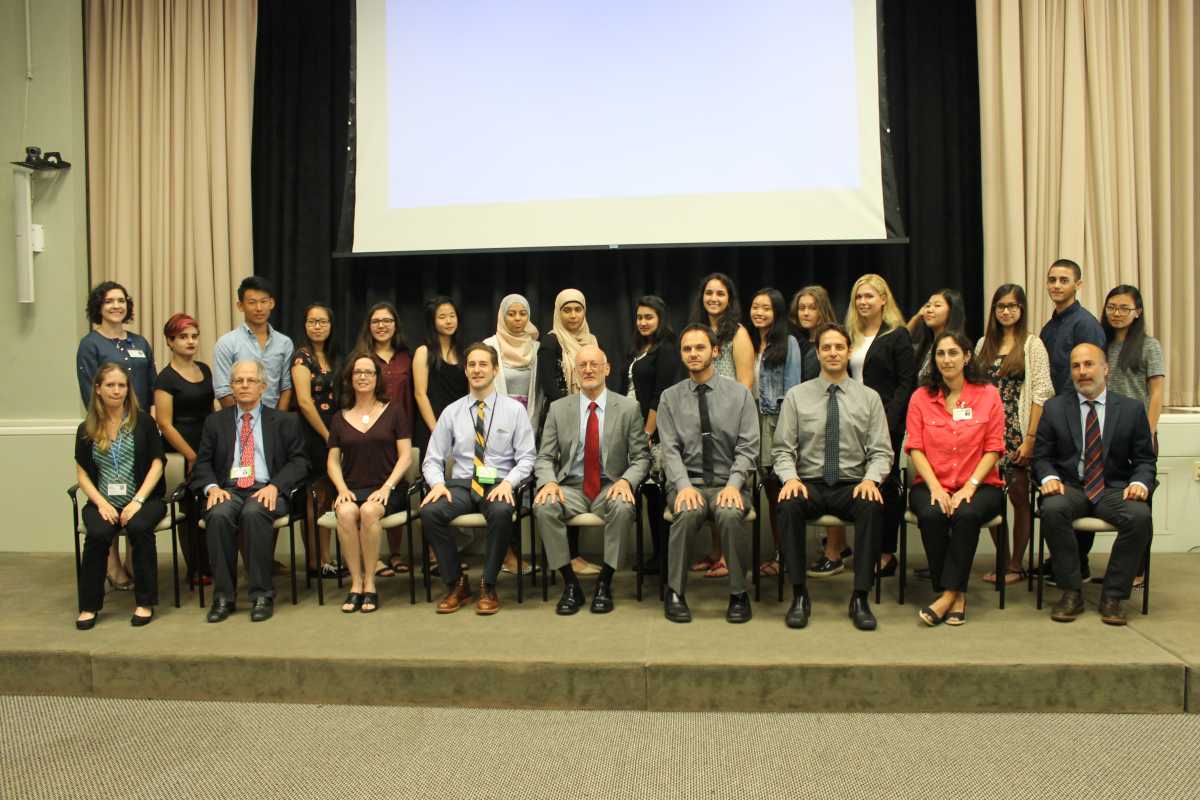Tech-savvy high school students presented computer-based programs and apps aiming to break the stigma of mental illness at Zucker Hillside Hospital in Glen Oaks on Thursday.
The presentation was the culmination of a six-week summer course for teens with an interest in pursuing careers in mental health. The students interned with Dr. John Kane, an internationally known psychiatrist and a leader in the research and treatment of schizophrenia, and worked with a group of doctors and therapists.
Submitted projects included an examination of mental illness in award-winning movies and an interactive program in which young people describe their emotions while listening to current music, and two of the groups tied to take home a $1,000 first prize for best project.
According to Dr. Kane—who is currently in office as chairman of psychiatry at Zucker Hillside Hospital—the overall goal of the program was to increase mental health literacy. Different aspects of that overall goal include finding out what people know about mental illness, what they understand about the signs and symptoms, how it can be treated and how well people can function with mental illnesses.
“We have to do a lot to reduce the stigma that associated with these illnesses so they’ve taken on that challenge, and I think they’ve come up with some terrific ideas,” Kane said.
Lucy Lin, a high school student from Fresh Meadows who participated in the program, said that she experienced the stigma in her own home with her parents, who encourage her to become a doctor but are not supportive of her interest in treating mental illnesses.
“I wanted to be involved in this because psychiatry in general is a very stigmatized area of study,” Lin said. Her group created a series of posters featuring pop culture figures who suffer from schizophrenia and an emoji-based system of emotional expression.
Dr. Frederick Muench, a doctor at North Shore-LIJ Health System who is currently serving as director of digital health interventions, said that all of the projects had the potential to help many people suffering from mental illnesses.
“I hope that this experience has helped you realize the power of technology to engage people in the care process,” Frederick Muench said. “What [this project has] done for us is really help us see how you are going to make a tremendous difference in this world.”
RECOMMENDED STORIES
- Fish die in Flushing’s Kissena Lake after flash floods
- Pedestrian seriously injured after being hit by bus in Flushing
- Whitestone officials pledge action to deal with overhead helicopter noise
































